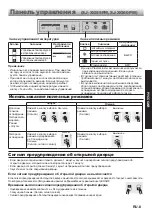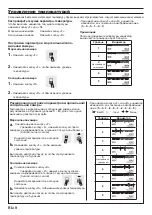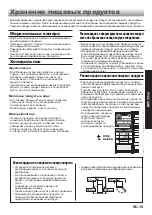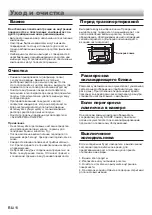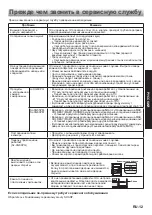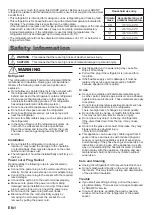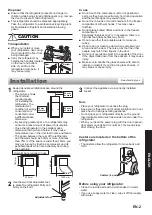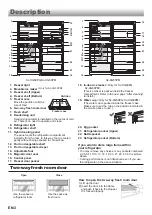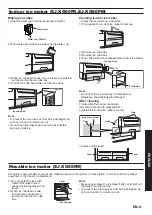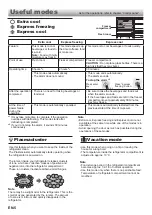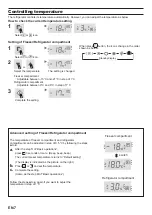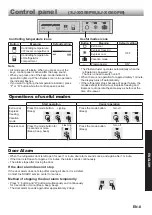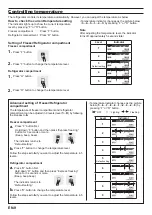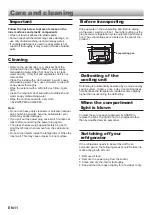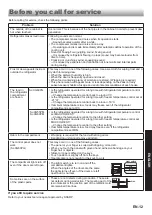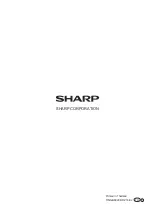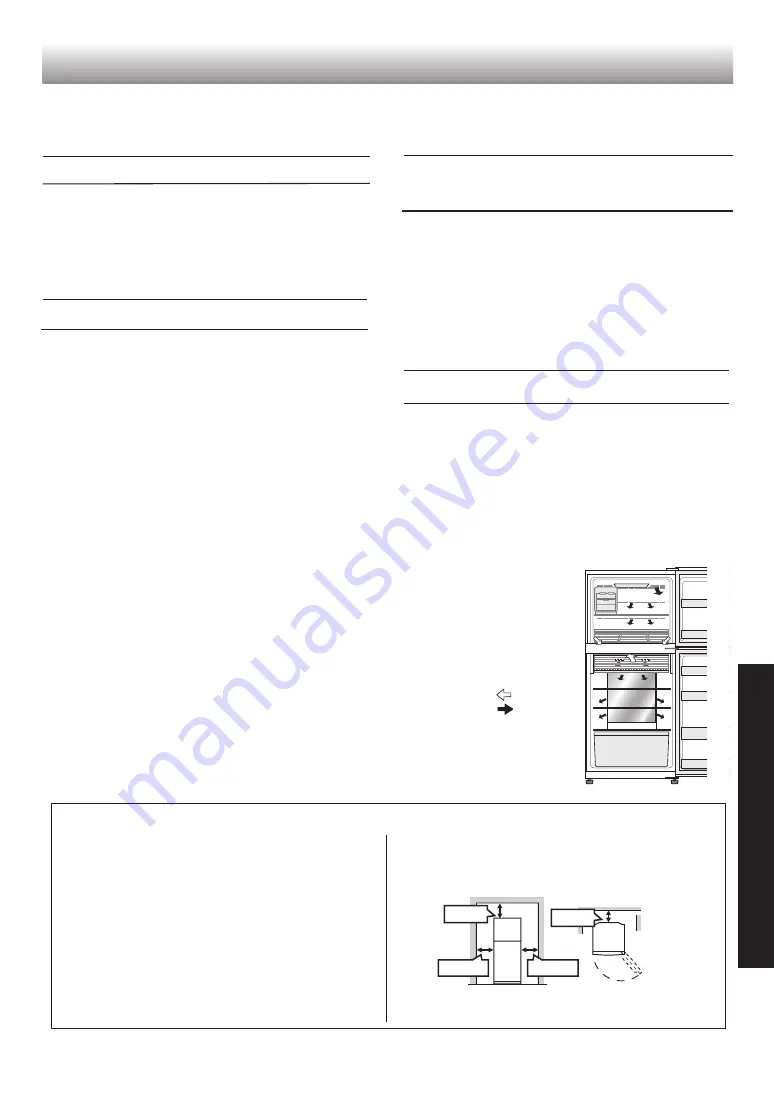
ENGLISH
EN-10
ENGLISH
IN
OUT
•
Freeze small quantities of food at a time in order to
freeze them quickly.
•
Food should be properly sealed tightly or covered .
•
Place foods in the freezer evenly.
• Label bags or containers to keep an inventory of
freezing food.
Advice for preventing dew or
frost inside the refrigerator
•
Ensure that the food is of the freshest possible quality to maximize the storage life of perishable food. The following is
a general guide to help promote longer food storage.
•
Food has a limited storage life. Make sure not to exceed use-by date indicated by manufacturer.
• The amount of energy consumption of this model is
measured as shown in the picture below.
•
Install the refrigerator in a well-ventilated area and
keep the space to ventilate.
• Keep your refrigerator out of direct sunlight and do
not place it next to heat generating appliance.
•
Avoid opening the door as much as possible.
•
Hot food should be cooled before storing.
•
Place the food evenly on the shelves to allow the
cool air to circulate efficiently.
Tips for saving energy
Storing food
300
mm
300
mm
90
mm
50
mm
Fruit / Vegetables
•
Fruit and vegetables should be loosely enclosed in
a plastic material e.g. wrap, bags (do not seal) and
placed in the fruit and vegetable crisper to minimize
moisture loss.
•
Fruits and vegetables which are easily effected by low
temperature should be stored in a cool place except
for the refrigerator.
Dairy Products & Eggs
•
Most dairy products have their best-before date on
the outer packaging which informs the recommended
temperature and shelf life of the foods.
• Eggs should be stored in the egg pocket .
Meats / Fish / Poultry
•
Place on a plate or a dish and cover with paper or
plastic wrap.
•
For larger cuts of meat, fish, or poultry, place to the
rear of the shelves.
•
Ensure all cooked food is wrapped securely or placed
in an airtight container.
Freezer
Refrigerator
Advice for storing food
•
Keep the door securely closed. If the food falls down,
it may cause a gap between the cabinet and the door.
Move it back to the shelf or the pocket.
•
Open and close the door quickly as much as possible.
Dew or frost may appear if the door is left open for a
long period of time or opening and closing of the door
is very often.
•
Stored items should be packed or sealed with such as
food containers or plastic wraps. (Especially food with
high-moisture)
•
Evenly place the food on the shelves to allow the
cooling air to circulate efficiently.
•
Hot food should be cooled before storing. Storing hot
food increases the temperature in the unit and the risk
of food spoilage.
• Do not block the outlet and inlet of the cool air
circulating circuit with food or containers; otherwise the
food is not be evenly cooled throughout the refrigerator.
• Do not place food directly in front of cold air outlet. This
may lead to the food freezing.

